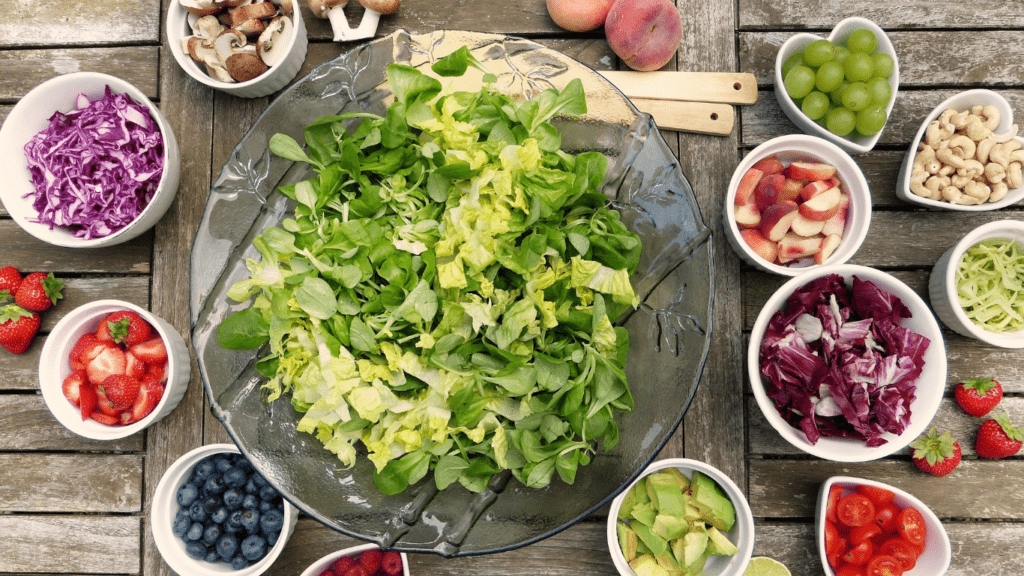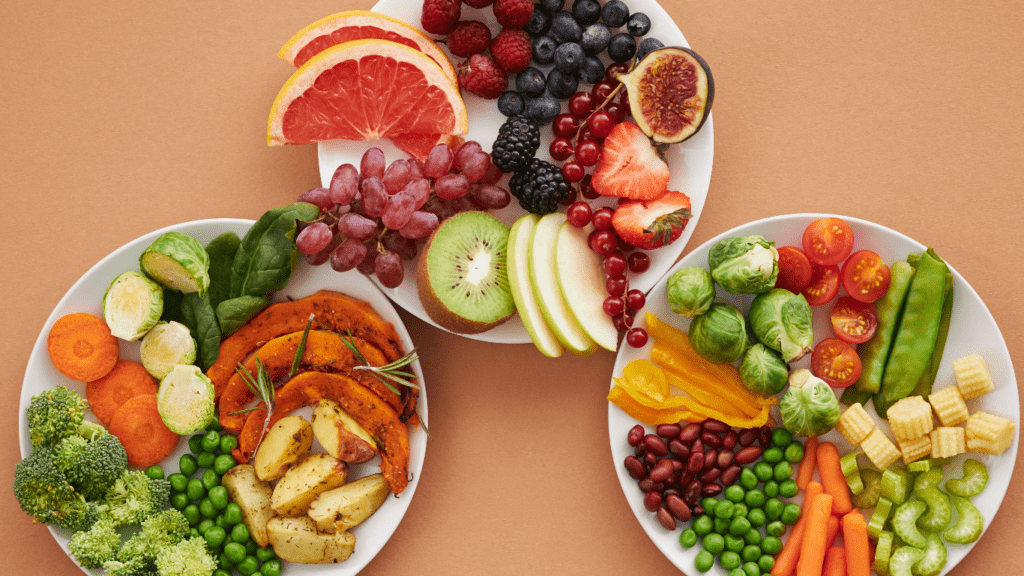Understanding Plant-Based Nutrition
Plant-based nutrition centers on foods derived from plants, providing essential nutrients for overall health. Athletes can thrive by incorporating a variety of nutrient-dense foods into their diets.
Key Components of a Vegan Diet
A well-rounded vegan diet includes several key components:
- Proteins: Legumes (such as lentils and chickpeas), tofu, and tempeh provide quality protein.
- Healthy Fats: Avocados, nuts, and seeds offer essential fatty acids.
- Carbohydrates: Whole grains, fruits, and vegetables serve as primary energy sources.
- Vitamins and Minerals: Leafy greens and fortified plant milks deliver important nutrients like calcium and vitamin B12.
Combining these elements ensures athletes receive vital nutrients to support training and recovery.
Nutritional Benefits for Athletes
Athletes on plant-based diets can experience several nutritional benefits:
- Enhanced Recovery: High antioxidant content in fruits and vegetables reduces inflammation and speeds recovery.
- Improved Heart Health: Low saturated fat levels and high fiber support cardiovascular wellness.
- Optimal Weight Management: Nutrient-rich, low-calorie foods aid in maintaining ideal body composition.
Utilizing plant-based nutrition allows athletes to sustain energy levels, improve performance, and maintain overall health.
Performance and Recovery on a Vegan Diet

Athletes on vegan diets often experience enhanced recovery and sustained energy levels. The question remains whether these plant-based regimes support endurance and muscle growth effectively.
Energy Levels and Stamina
Plant-based diets can sustain energy levels for athletes through nutrient-dense foods. Complex carbohydrates from whole grains and legumes supply a steady stream of glucose, the body’s primary energy source. Rich in antioxidants and phytonutrients, fruits and vegetables help reduce oxidative stress during intense training. According to a study in the Journal of the International Society of Sports Nutrition, a diet rich in carbohydrates enhances endurance capacity.
Muscle Recovery and Growth
Muscle recovery and growth hinge on sufficient protein intake. Legumes, quinoa, nuts, seeds, and soy products like tofu and tempeh supply essential amino acids. These plant proteins help repair muscle damage and build muscle tissue. A 2022 study in Nutrients suggests that a well-planned vegan diet meets protein needs comparable to omnivorous diets. Additionally, plant foods’ anti-inflammatory properties aid recovery by reducing muscle soreness after workouts.
Common Challenges and Solutions
Athletes might face certain hurdles when adopting plant-based nutrition, but strategic planning helps overcome them effectively. Here’s how to tackle key challenges.
Meeting Protein Requirements
Athletes need adequate protein for muscle repair and growth. Plant-based sources like legumes, quinoa, and soy provide complete protein profiles. Diversifying protein sources across meals maximizes amino acid intake. Combining foods like rice and beans ensures all essential amino acids are covered. For targeted intake, use plant-based protein powders from peas or hemp.
Addressing Micronutrient Deficiencies
Athletes must ensure sufficient micronutrient intake to sustain performance. Iron, vitamin B12, and omega-3s often require attention in vegan diets.
Consuming iron-rich foods such as lentils, fortified cereals, and dark leafy greens enhances iron levels. Vitamin B12, primarily found in animal products, needs supplementation or consumption through fortified foods. For omega-3s, include chia seeds, flaxseeds, and walnuts in diets, or opt for algae-based supplements to secure adequate levels.
Success Stories in the Athletic World
Many athletes have embraced plant-based diets and thrived while maintaining peak performance. Their stories showcase the potential benefits of vegan nutrition in high-intensity sports and inspire others to consider this lifestyle.
Notable Vegan Athletes
Several prominent athletes attribute their success to plant-based diets. Tennis champion Venus Williams transitioned to a vegan diet to manage symptoms of an autoimmune disease and has continued competing at the highest levels.
Ultramarathoner Scott Jurek, known for winning multiple long-distance races, follows a vegan diet, citing improved recovery and endurance.
Olympic weightlifter Kendrick Farris adopted a vegan diet in 2014 and still competed effectively in intense weight categories. These athletes demonstrate that plant-based nutrition can support various sports at elite levels.
Impact on Performance and Career Longevity
- The adoption of vegan diets by athletes often results in significant performance benefits.
- Many report increased energy levels due to a steady intake of complex carbohydrates and reduced inflammation from antioxidants, enhancing recovery times.
- Professional triathlete Rich Roll credits his vegan diet for improved stamina and recovery, which extended his competitive career.
- By minimizing muscle damage and fostering efficient recovery, vegan diets may also support prolonged athletic careers.
- Athletes like Novak Djokovic, who follow plant-based diets, often experience sustained performance and health benefits, aligning nutrition with long-term sports commitments.
Expert Opinions and Research Findings
Experts agree that athletes can thrive on plant-based diets, and recent research supports this perspective. Cutting-edge studies and nutritionist insights reveal how vegan diets align with athletic goals.
Recent Studies on Vegan Diets for Athletes
I found a study from 2022 in the Journal of the International Society of Sports Nutrition that examined vegan athletes’ performance. The researchers noted no significant difference in the performance metrics of athletes on vegan diets compared to those on omnivorous diets. Another study published in Nutrients focused on muscle strength and endurance, showing that a balanced vegan diet supports these aspects effectively, provided protein intake is adequate.
These findings highlight the growth potential of muscle tissue even without animal protein. Furthermore, recent data compiled in a 2023 systematic review indicate that plant-based diets may reduce inflammation and oxidative stress, both crucial for faster recovery.
Nutritionists’ Insights and Recommendations
Leading nutritionists advocate for careful planning when adopting a plant-based diet for athletes. According to registered dietitian and sports nutrition expert Nancy Clark, eating a wide variety of plant proteins, such as lentils, chickpeas, and tofu, ensures a comprehensive amino acid profile. She emphasizes portion control and regular meal timings to maintain energy levels.
Additionally, sports nutritionist Dr. Michael Greger suggests including vitamin C-rich foods to enhance non-heme iron absorption from plant sources, which is vital for maintaining optimal energy. He also recommends fortified plant milk for meeting calcium and vitamin B12 needs. By following these targeted strategies, athletes can optimize their nutrition while committing to a vegan lifestyle.





